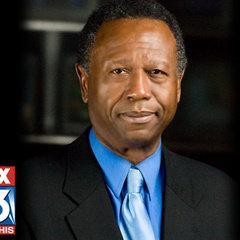Almost seven years ago, I stood under a clear, blue September sky in Jena, Louisiana, as more than 20,000 African Americans flooded the streets of that rustic community in protest of the conviction of six teenagers for the alleged beating of a white student at the town’s high school. I thought then, in 2007, that that demonstration of unity of purpose might lead to a new awakening of social consciousness in America regarding race relations. It didn’t.

Five years later, I was reporting on the daily demonstrations of outrage in Memphis in reaction to the shooting death in Florida of 17-year-old Trayvon Martin at the hands of a self-appointed neighborhood watch captain, George Zimmerman. The outpouring of tears, outrage, and disgust at the fact that Martin’s “stereotypical” hoodie served as a catalyst for his being targeted by the overzealous wanna-be cop seemed universal — an appalled response from the majority of the general public. Surely, I thought, this would be the incident that would sustain a national dialogue about race, false perceptions, and tainted justice and result in sweeping positive social upheaval in the name of equality. It didn’t.
So, pardon me if the prospect of people taking to the streets of Memphis this week to demonstrate solidarity with those mourning the loss of 18-year-old Michael Brown in a police shooting in Ferguson, Missouri, strikes me as a hollow gesture — especially since we’ve got so much work left to do in addressing the plight of African-American youth here in Memphis. It’s blasphemous to focus on a tragedy 300 miles away when we should be concentrating on the atrocities within our own city. It doesn’t take much to know where to begin.
As I reported on television last week, there are an estimated 10,000 students who have not yet enrolled in school in Shelby County. Because of confusion regarding the various municipal, private, charter, and state-run achievement district school systems, clarity about who is going where might be a little muddled, but that doesn’t take away from the fact that thousands of students are apparently not in school anywhere. The SCS superintendent and school board members are only now, two weeks into the educational year, deciding to push parental procrastinators into action to get their children in classrooms through a series of radio and television ads.
Since when did getting a basic education become an option? There are laws on the books about the penalties parents can face because of their children’s truancy. Shelby County District Attorney Amy Weirich stands ready to enforce them. Let’s take her up on her word to do so. You can’t tell me there’s not a direct correlation between school truants and the youth violence in our streets. In the month between July 13th and August 13th, Memphis police responded to 27 shooting incidents involving juveniles. The youngest victim was 12. Apparently, these incidents have caught the attention of Memphis Mayor A C Wharton who now wants to call a summit to discuss ways to stop the violence.
Though I have my doubts, I hope the mayor isn’t content in this situation to surround himself with “yes men” who are going to give him a false sense that the city is doing all it can to turn around this distressing tide. If the city truly wants to help, it should join the D.A.’s office in cracking down hard on truancy. Join with the schools in reaching out to young girls to teach them that making babies out of wedlock is not a career path. Have MPD hold seminars to stress to young black males the less-than-attractive alternatives of imprisonment or death that could come from living the life of a “gangsta.” If you want to call it “scared straight” or some snappier title, it doesn’t matter. Just do it.
As history has proven, marches and public demonstrations of concern are usually after-the-fact reactions — too little, too late. We shouldn’t have to march in memory of our slain youth, not when we can be proactive in giving our children a fighting chance to succeed through education. You can’t bring Trayvon Martin or Michael Brown back. But we, and the leaders of our community, can do our utmost to work toward making sure their deaths and the temporary unity of purpose their tragedies generated were not in vain, at least not here in Memphis.